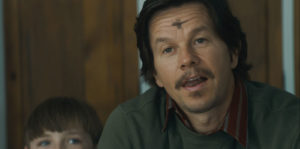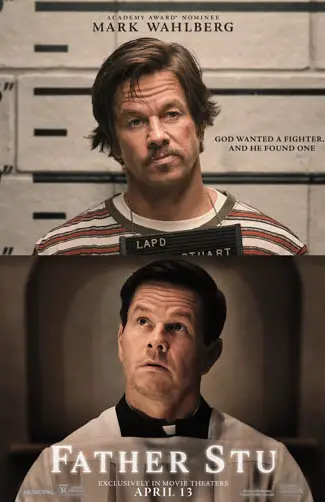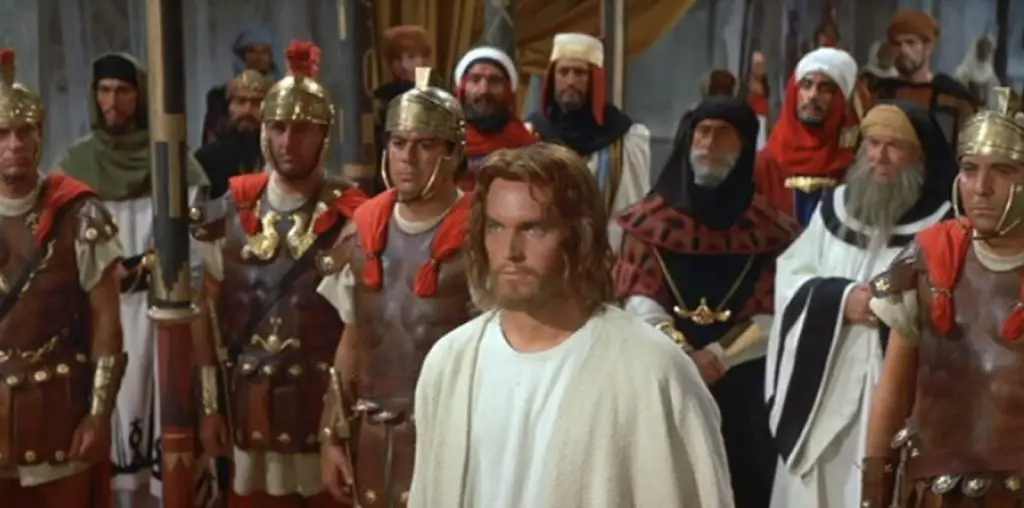
Based on a true story, Father Stu is about Stuart Long (Mark Wahlberg), an amateur boxer who can’t seem to make it to that next step in his career. When an injury ends his hopes and dreams of longevity in the sport, Stu moves to Los Angeles to pursue an acting career. His shortcomings as an actor plague his livelihood, so he becomes a supermarket clerk. While there, he meets Carmen (Teresa Ruiz), a Sunday school teacher who loves God and is apparently immune to Stu’s usual wits and charm.
Determined to win her over, Stu starts going to church to impress her. But after a near-fatal motorcycle accident, Stu reevaluates his life’s purpose and uses his second chance to help others. This ultimately leads him to pursue becoming a Catholic priest. With a persistent health crisis jeopardizing his Priesthood and the skepticism of his colleagues and family, Stu persists with compassion and courage, inspiring everyone around him.
There’s no denying the charm that encompasses the feature debut of writer-director Rosalind Ross. Truth be told, Father Stu is the kind of story that clearly defines its strategy early on with the expected elements and structure of an inspirational narrative. You’ve got the bad boy who doesn’t seem to make much of his life. The young girl who happens to be the object of his affection and the reason for which he is willing to change. Lastly, there’s the crisis or incident that impacts the protagonist’s life to the point of rapid change. These predictive elements don’t necessarily hurt the film nor my ability to enjoy it. Rather, it assists in eliminating the preachy route faith-based titles often go towards.
“…after a near-fatal motorcycle accident, Stu reevaluates his life’s purpose…”
Wahlberg taps into his wheelhouse when it comes to executing the more comedic and gritty portions of the character. But when it comes to emitting the strong emotion that a role like this requires, he leaves much to be desired. It’s not to say that he was miscast, but I couldn’t help but imagine what a more well-rounded actor could achieve with such a role.
The screenplay is partly to blame for these limitations, though. Stu started out his life as the typical bad boy. According to the script, he drank heavily, had a fiery and vulgar vocabulary, and wasn’t shy about chasing after women he wanted. But when it came to revealing that transition from “player” to prayer, there’s not much substance in the narrative. Specifically, there’s not much time, detail, or attention given to Stu’s drastic decisions leading up to his pursuit of ministry. It all feels a bit surface-level with the typical “I want to be a better person” explanation that most inspirational movies showcase.
Still, Father Stu has a lot going for it. It’s entertaining and considerate about religion, atheism, and those struggling to “pick a side.” Essentially, there’s no judgment on any type of person, which is beautiful to see. The ultimate message about people doing harm [or good] isn’t necessarily a novel one. But the way Ross navigates this narrative is relatable.
Ultimately, Father Stu is unlike any other faith-based film I’ve seen. It’s raw, honest, and uplifting without tapping into preachy territory, which ultimately makes it effortlessly uplifting. Though the drama holds back on the details with respect to the lead’s sudden pursuit of religion, the entertainment factor cannot be ignored. So, if you’re looking for an audacious movie filled with humor and drama submerged in religion, this just may be for you.

"…effortlessly uplifting."


